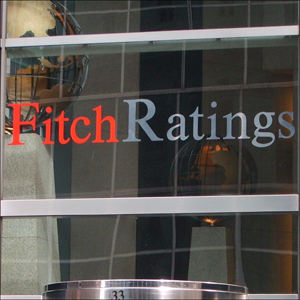Fitch Ratings-London-30 January 2015: The Greek election result does not change Fitch Ratings’ view that the country will reach an agreement with its official creditors. But there is a high risk that protracted and difficult negotiations will sap confidence and liquidity from the Greek economy.
Our baseline assumption reflects strong incentives for a settlement on both sides. A deal would unlock EUR7.2bn for Greece under its outstanding programme review. Greece’s official lenders (the EU, ECB, and IMF – the Troika) will want to avoid damage to the wider European project, and losses on their existing Greek exposures, should failure precipitate Greece’s exit from the single currency (a risk that we think is lower than in 2012).
But the path of negotiations is highly uncertain. Syriza’s choice of the Independent Greeks as a coalition partner signals a confrontational approach, due to both parties’ strong anti-austerity and pro-debt restructuring stances. The new government’s proposals to partially unwind or delay previously agreed reforms, although limited in scope, could alienate the Troika. And while senior members of the government have made conciliatory comments, political posturing on both sides risks further damaging investor and depositor confidence.
Redemptions of over EUR6bn of Greek bonds held by the Eurosystem under the Securities Markets Programme in July and August effectively form a hard deadline for an agreement. But negotiations could still last several months, as with previous programme reviews. They will probably encompass: completion of the outstanding review and extending the current programme beyond the end of February; a new (possibly precautionary) programme; and official sector debt restructuring (OSI). The longer they take, the greater the pressure on the sovereign’s financing position, and on bank liquidity and the economy.
The content of any settlement is hard to predict. With substantial fiscal tightening already accomplished, looser primary surplus targets are possible, as is “soft” OSI via maturity extensions and lower interest costs (principal write-downs are less politically acceptable to official creditors). The concessional nature of Greece’s existing debt means this would not dramatically improve Greece’s debt/GDP ratio, which will be more influenced by nominal GDP growth rates. Greece’s debt stock already has a long average maturity of over 16 years and a low average interest rate of around 2.3%.
The prospect of delays in securing official and market financing and the gap between the two sides’ policy proposals are reflected in our revision of the Outlook on Greece’s ‘B’ sovereign rating to Negative on 16 January. Our next scheduled review of Greece’s sovereign rating is on 15 May. If no progress is made in negotiations with the Troika by then and financial and economic conditions worsen, we would be likely to downgrade the rating. If a deal were secured under which Greece received official financing, we could affirm the rating.
We discussed political developments in Greece and the sovereign and banks’ liquidity positions in a teleconference on 29 January. A replay is available at www.fitchratings.com.



















